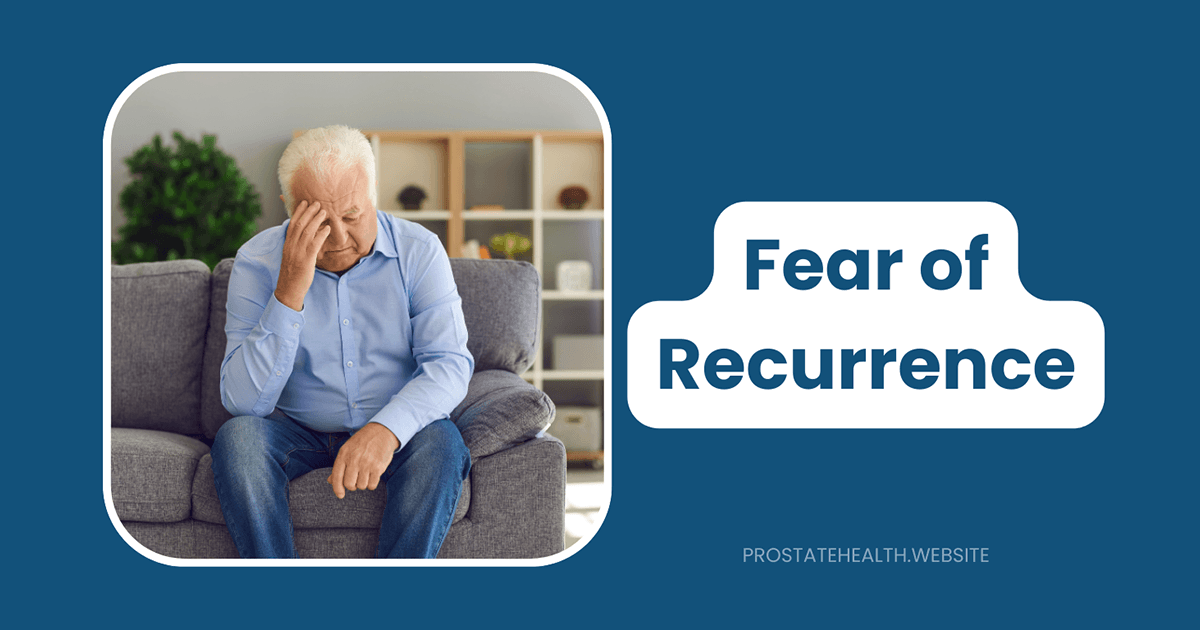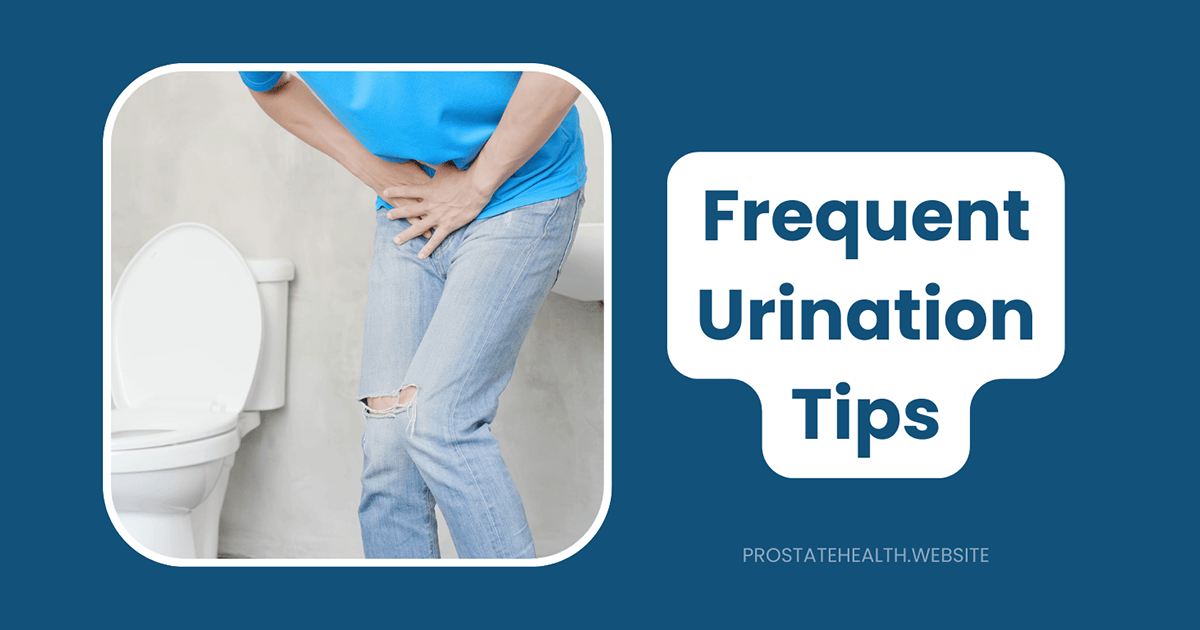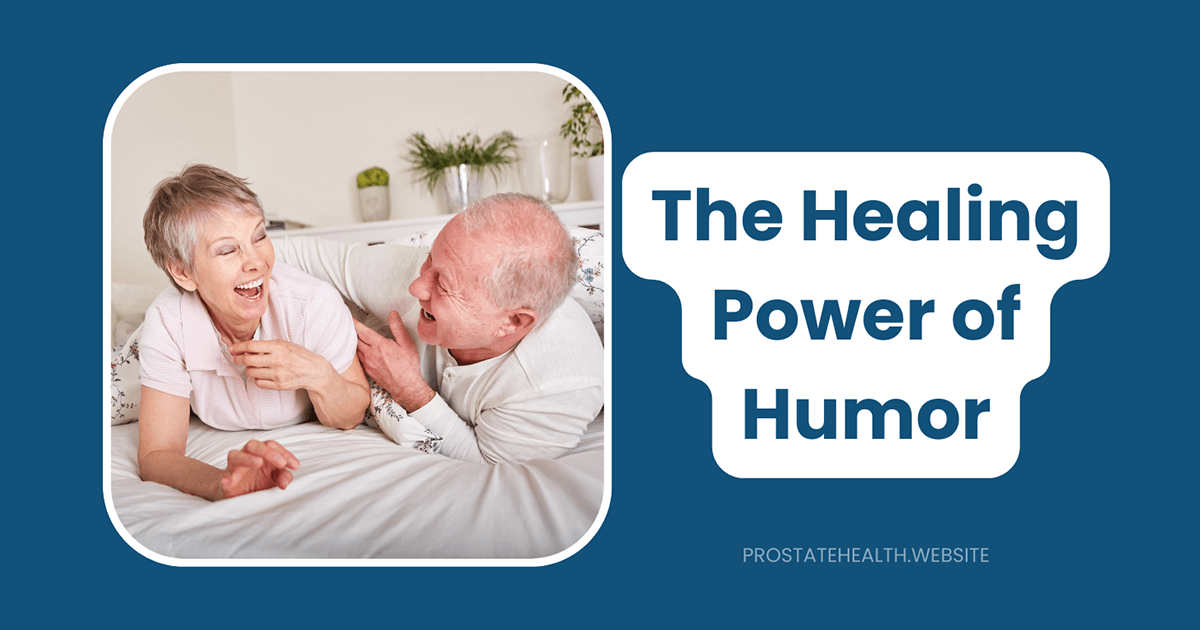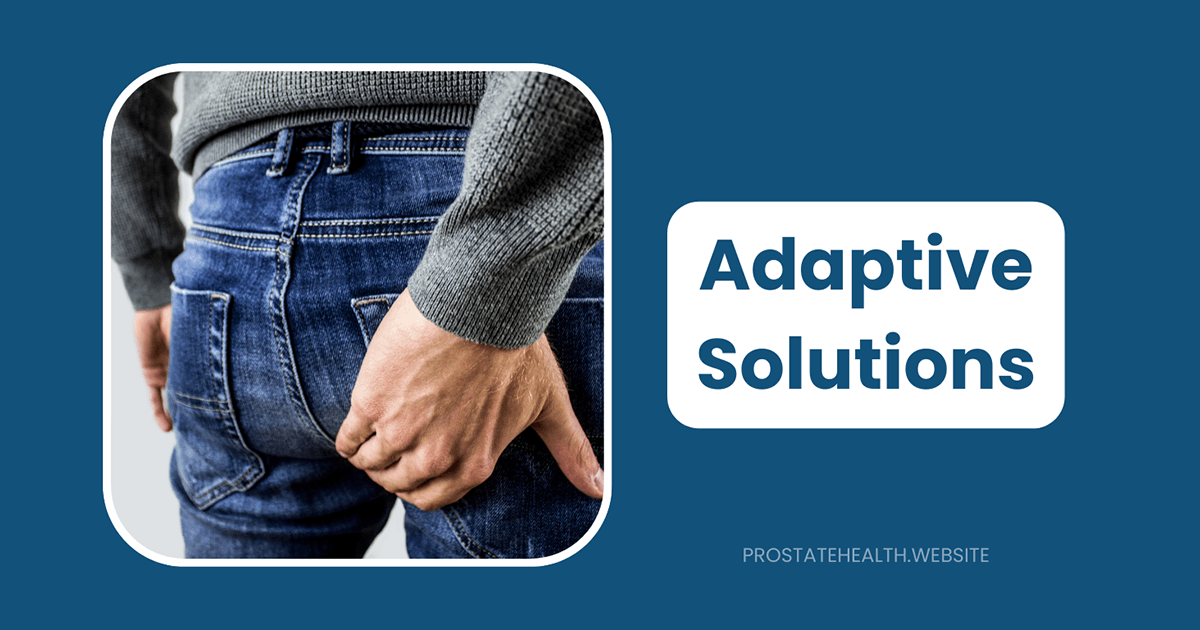Body Image Issues After Prostate Treatment
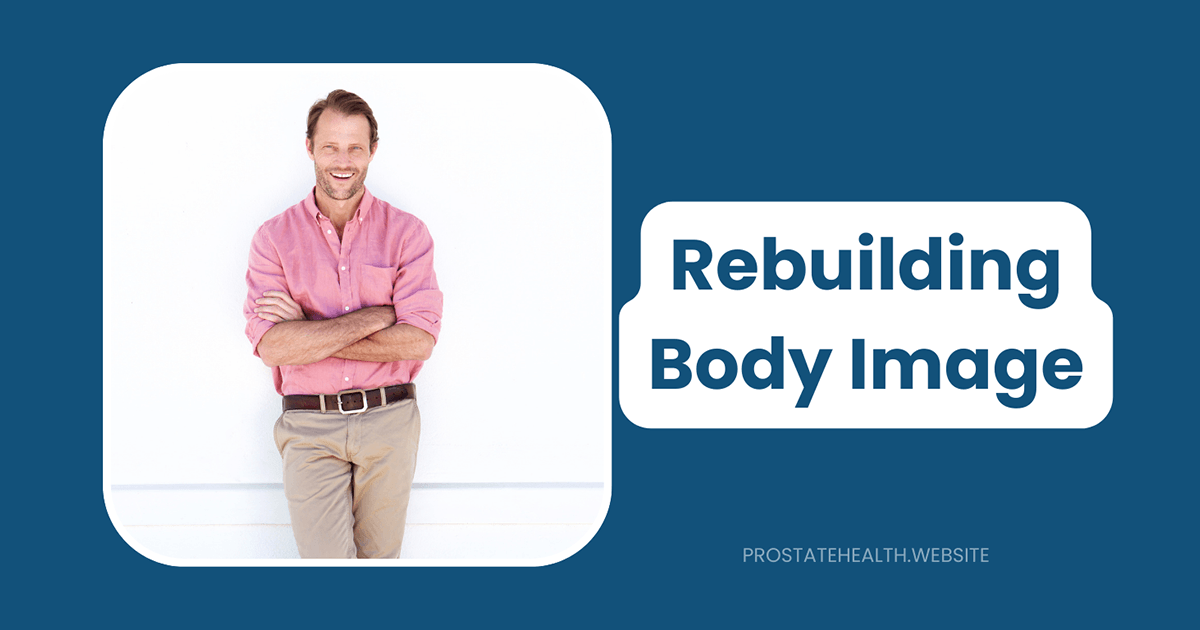
When David first came to our support group, he sat quietly in the back row. Six months after his prostate cancer treatment, he was cancer-free—a medical success story. Yet something was clearly troubling him. It wasn’t until our third meeting that he finally spoke up.
“I don’t recognize myself anymore,” he admitted, his voice barely audible. “I’ve gained weight around my middle, I’ve lost muscle, and I feel… less like a man. My wife says I’m still the same person, but when I look in the mirror, I don’t see the same guy looking back.”
David’s experience isn’t unusual. In my years of advocacy work with prostate cancer survivors, I’ve found that body image issues are among the most common—yet least discussed—challenges men face after treatment. Research backs this up, with studies showing that up to 60% of men experience significant psychological distress during and after prostate cancer treatment, much of it related to changes in their physical appearance and function.
The medical community has made remarkable advances in treating prostate cancer, with survival rates higher than ever before. But survival alone isn’t enough. Quality of life matters too, and how men feel about their bodies is a crucial part of that equation.
This article explores the body image challenges that can follow prostate cancer treatment, why they matter, and most importantly, how to navigate them with dignity and hope. Because while your body may have changed, your worth and identity remain intact.
Understanding Body Changes After Prostate Treatment
To address body image concerns effectively, it helps to understand why and how prostate cancer treatments can change your body:
Hormone Therapy (Androgen Deprivation Therapy)
Hormone therapy works by reducing testosterone levels, which can slow or stop prostate cancer growth. However, these hormonal changes can lead to:
- Weight gain, particularly around the abdomen
- Loss of muscle mass and strength
- Breast enlargement or tenderness (gynecomastia)
- Loss of body hair
- Hot flashes that can cause visible sweating and flushing
As James, 62, describes it: “Within six months of starting hormone therapy, I’d gained 15 pounds, mostly around my middle. My chest became softer. I felt like my body was becoming less masculine, and that was harder to deal with than the cancer diagnosis itself.”
Surgery (Radical Prostatectomy)
While surgical removal of the prostate primarily affects internal function, it can also lead to:
- Surgical scars
- Changes in penis size or shape (reported by some men)
- Weight changes due to reduced activity during recovery
- Muscle loss from extended recovery periods
Radiation Therapy
External beam radiation or brachytherapy can result in:
- Skin changes in the treatment area
- Weight fluctuations
- Fatigue that limits physical activity, potentially leading to muscle loss
The Psychological Impact: More Than Just Appearance
Body image issues after prostate cancer treatment go far deeper than vanity or appearance concerns. They often touch on fundamental aspects of male identity and self-worth.
Masculinity and Identity
For many men, physical strength, sexual function, and a certain body type are deeply intertwined with their sense of masculinity. When treatment changes these aspects, it can trigger profound questions about identity.
“I built my career in construction. Being strong was part of who I was,” explains Robert, 58. “After hormone therapy, I couldn’t lift what I used to. I felt like I was losing a core part of myself.”
Research published in the European Journal of Cancer Care found that men often struggle to redefine their masculinity after prostate cancer treatment, with many reporting feelings of shame and inadequacy related to body changes.
Social and Relationship Concerns
Body image issues don’t exist in isolation—they affect how men interact with others:
- Intimate relationships may be strained by self-consciousness
- Social activities like swimming or changing at the gym may become sources of anxiety
- Workplace interactions might feel different, especially in physically demanding jobs
Thomas, 65, shared: “I stopped going to my weekly swim with friends. The thought of them seeing my softer body and possibly the slight swelling in my chest area… I just couldn’t face it, even though these were friends I’d known for decades.”
The Cycle of Distress
Body image concerns can create a troubling cycle:
- Physical changes lead to negative body image
- Negative body image contributes to reduced self-esteem
- Lower self-esteem may cause social withdrawal
- Social isolation can lead to depression
- Depression often reduces motivation for physical activity
- Reduced activity can worsen physical changes
Breaking this cycle requires addressing both the physical and psychological aspects of recovery.
Strategies for Coping with Body Image Changes
While some body changes from prostate cancer treatment may be permanent, there are effective ways to improve both your physical condition and how you feel about your body:
Physical Approaches
Tailored Exercise Programs
Exercise is one of the most effective interventions for body changes related to prostate cancer treatment:
- Resistance training helps maintain or rebuild muscle mass
- Aerobic exercise assists with weight management and energy levels
- Balance exercises improve functional strength and confidence
Research shows that men who engage in regular exercise during and after prostate cancer treatment report better body image and quality of life than those who remain sedentary.
“I started with just walking 10 minutes a day,” says Michael, 70. “Six months later, I was doing light weight training three times a week. I haven’t gotten back my 40-year-old body, but I feel stronger and more comfortable in my skin.”
Practical tip: Consider working with a physical therapist or trainer experienced in cancer recovery. Many cancer centers offer specialized exercise programs for survivors.
Nutrition Strategies
Dietary approaches can help manage some treatment-related body changes:
- Protein-rich foods support muscle maintenance
- Fiber and nutrient-dense foods help manage weight gain
- Limited alcohol can reduce excess calorie intake and improve hormone balance
- Adequate hydration supports overall health and can reduce treatment side effects
“Changing my diet didn’t reverse all the effects of hormone therapy, but it gave me some control back,” shares William, 59. “Working with a nutritionist helped me develop an eating plan that managed my weight without feeling like I was on a restrictive diet.”
Practical tip: Ask your healthcare team for a referral to a registered dietitian who specializes in oncology nutrition.
Psychological Approaches
Reframing Thoughts About Your Body
Cognitive techniques can help shift how you think about your changed body:
- Challenge negative thoughts when they arise (“My body has changed, but it also fought cancer successfully”)
- Practice gratitude for what your body can still do
- Separate function from appearance when assessing your body
- Recognize that all bodies change with age and illness—you’re not alone
Mindfulness and Acceptance
Mindfulness practices help men develop a more compassionate relationship with their bodies:
- Body scan meditations can reduce criticism and increase appreciation
- Present-moment awareness reduces rumination about past or future body states
- Self-compassion exercises counter shame and self-criticism
“Learning mindfulness changed how I thought about my body,” explains James. “Instead of constantly comparing myself to how I used to look, I began to appreciate what my body had endured and survived. The changes became badges of courage rather than sources of shame.”
Professional Support
For many men, professional help is invaluable:
- Individual therapy, particularly cognitive-behavioral approaches
- Support groups specifically for prostate cancer survivors
- Couples counseling to address intimacy and relationship concerns
“I was reluctant to try therapy—thought it wasn’t for guys like me,” admits Robert. “But those sessions helped me process feelings I couldn’t even name, let alone discuss with friends or family. It was one of the best decisions I made during recovery.”
Communicating with Partners and Loved Ones
Body image concerns don’t just affect you—they can impact your closest relationships, particularly with intimate partners.
Opening the Conversation
Many men find it difficult to discuss body image concerns, but open communication is essential:
- Choose a relaxed, private moment for the conversation
- Use “I” statements to express feelings without blame (“I feel self-conscious about the changes in my body”)
- Be specific about what would help (“It would help me if you could reassure me that these changes don’t affect how you see me”)
- Listen to your partner’s perspective as well
“I avoided intimacy for months after treatment,” shares Thomas. “My wife thought I’d lost interest in her, when really I was afraid she’d be turned off by my changed body. When we finally talked about it, I learned she was far more concerned about my health than any physical changes.”
What Partners Can Do
If you’re the partner of someone experiencing body image issues after prostate treatment:
- Offer reassurance without dismissing feelings
- Maintain physical affection, even if sexual intimacy has changed
- Acknowledge the challenge without focusing exclusively on it
- Suggest joint activities that promote physical and emotional well-being
As one partner in our support group shared: “I make sure to compliment him on things that haven’t changed—his smile, his kindness, his sense of humor. And I’m physically affectionate in ways that feel good to both of us, which helps him see that I still find him attractive.”
Finding New Sources of Confidence and Identity
Body changes after prostate cancer treatment often prompt men to reconsider what defines them as individuals. This can be challenging, but also an opportunity for growth.
Expanding Your Self-Definition
Consider:
- What qualities and values define you beyond physical appearance?
- What activities and relationships bring you meaning and satisfaction?
- What wisdom and perspective have you gained through your cancer experience?
“Before cancer, I defined myself largely through physical achievements,” says Michael. “After treatment, I had to find other sources of identity and pride. I discovered I’m a pretty good mentor to younger colleagues, something I never would have focused on before.”
Developing New Skills and Interests
Many men find that developing new interests helps shift focus from body changes to new capabilities:
- Creative pursuits like writing, music, or art
- Intellectual challenges such as learning a language or taking courses
- Volunteer work that leverages your experience and wisdom
- Adaptive physical activities that work with your current abilities
“I couldn’t play basketball anymore after treatment—I just didn’t have the same energy or strength,” shares James. “But I discovered photography on my daily walks, and now I have a passion that brings me joy and connects me with a whole community of like-minded people.”
When to Seek Additional Help
While some degree of adjustment to body changes is normal, certain signs suggest you might benefit from professional support:
Signs That Additional Help Might Be Beneficial
- Persistent avoidance of social situations due to body image concerns
- Significant distress that doesn’t improve with time and self-help strategies
- Relationship problems stemming from body image issues
- Symptoms of depression such as persistent sadness, sleep problems, or loss of interest in activities
- Extreme measures to change your appearance that might compromise your health
Where to Find Help
- Your oncology team can provide referrals to appropriate specialists
- Psychologists or therapists with experience in cancer survivorship
- Cancer support organizations like ZERO – The End of Prostate Cancer or the Prostate Cancer Foundation
- Body image specialists who understand the unique challenges of cancer-related changes
“I waited too long to get help,” admits David, whom we met at the beginning. “I thought I should just ‘man up’ and deal with it myself. But talking with a therapist who specialized in cancer survivorship helped me see that my feelings were normal and gave me tools to address them.”
Resources for Support and Information
These resources can provide additional support for body image concerns after prostate cancer treatment:
Organizations
- ZERO – The End of Prostate Cancer offers support groups and resources
- Prostate Cancer Foundation provides information on side effect management
- Cancer Support Community offers free support services
Books
- “Man to Man: Surviving Prostate Cancer” by Michael Korda
- “Promoting Wellness for Prostate Cancer Patients” by Mark A. Moyad
- “The New Male Sexuality” by Bernie Zilbergeld
Online Communities
- Us TOO International hosts support groups and online forums
- Cancer Survivors Network offers peer support
A New Perspective: Your Body’s Triumph
As we conclude, I’d like to offer a perspective shift that has helped many men in our support groups: Your body after prostate cancer treatment isn’t just a changed body—it’s a triumphant one.
Think about it: Your body has endured diagnosis, treatment, and recovery from a serious disease. It has demonstrated remarkable resilience and healing capacity. The changes you see aren’t just losses—they’re also evidence of your body’s successful battle against cancer.
As Robert eloquently put it in one of our meetings: “I used to look in the mirror and focus on what cancer took from me. Now I try to see what cancer couldn’t take—my life, my relationships, my ability to experience joy and meaning. The scars and changes are just part of my story now, not the whole story.”
This shift in perspective doesn’t happen overnight, and it doesn’t mean you won’t still have difficult days. But gradually, many men find that acceptance—and even appreciation—for their changed bodies becomes possible.
Your body may be different after prostate cancer treatment, but it remains worthy of respect, care, and compassion. And so do you.
Have you experienced body image concerns after prostate cancer treatment? What strategies have helped you cope? Share your experiences in the comments below to help other men navigating similar challenges.

